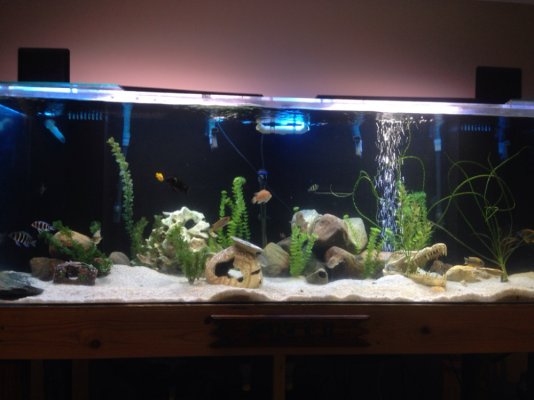LostInFish
Aquarium Advice FINatic
I have a 180 gallon setup with african cichlids ph 7.6 gh15 kh12 fish look great have been eating and doing well. My question is what's normal TDS ppm for Africans I know it must be a little higher then the average fish due to minerals and things in there natural environment. Just curious as I don't want these to high. And have it cause pressure on my fish. Anyone ?? I'm guessing anywhere from 100-400 reg tropical fish then 400-800 Africans but that's just a guess

